Brexit gaps appear between EU and UK
- Published
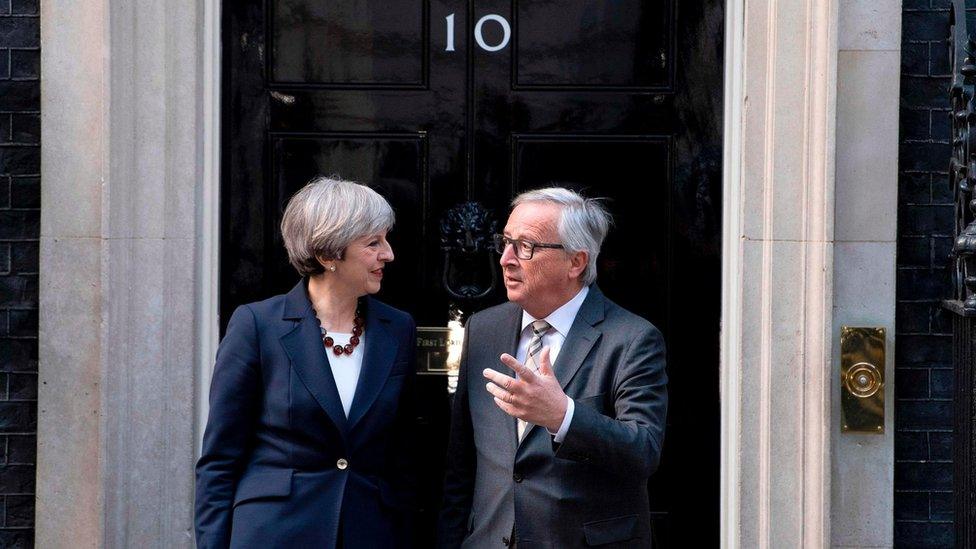
The European Union set out tough terms for the Brexit negotiations at the weekend.
It followed up with a steady drumbeat of briefings suggesting the UK is unprepared for the talks ahead and is harbouring delusions about the possible outcomes.
Officials in Brussels naturally have a vested interest in stressing that leaving the EU is difficult and dangerous.
But there's enough detail in the descriptions of a difficult dinner in Downing Street last week to suggest that there are real problems alongside the tactical manoeuvrings.
It seems clear that the two sides were facing each other, not just across the dining table, but across a gulf of perceptions too.
President of the EU Commission Jean-Claude Juncker, who was a guest of Theresa May, apparently told his host that the more he heard about the British position, the more sceptical he was about the prospects of a deal.
His staff have made it known that he telephoned German Chancellor Angela Merkel to warn that in his view the prime minister was "deluding herself".
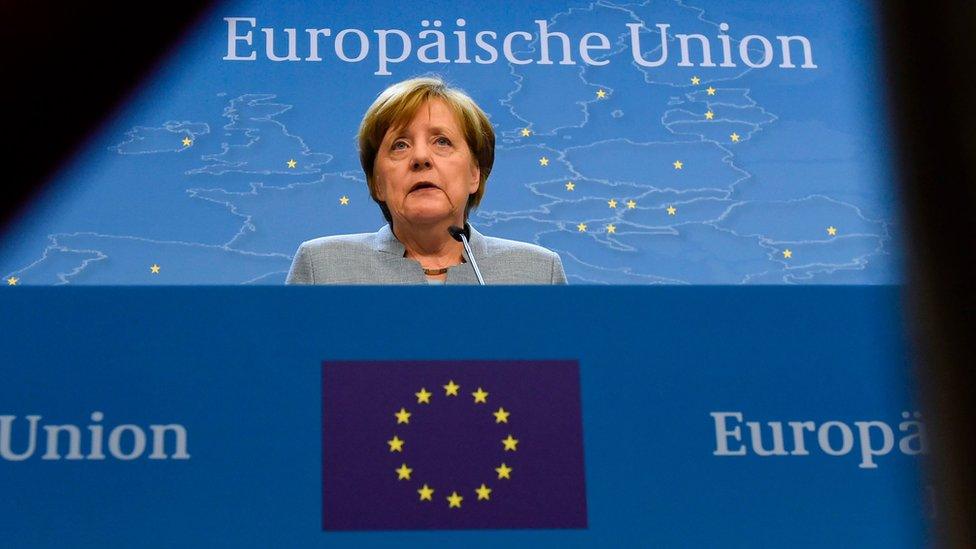
Angela Merkel has been party to the EU's concerns about the UK's position over Brexit
British perceptions of the meal have not been leaked in the same level of detail, but there's no doubt the European briefings will be seen in the UK as provocative - and designed to stir up fears among British voters about what Brexit is ultimately going to mean.
It's also worth pointing out that the hostile briefing carried in the German newspaper Frankfurter Allgemeine Zeitung is at variance not only with the British view that the meal went well, but also with Mr Juncker's own earlier public description of the dinner as "excellent".
But there are more concrete signs that relations between London and Brussels are strained.
The UK is said to be holding up a budget increase for the EU on the grounds that its hands are tied by the rules of purdah - the convention that politically controversial or sensitive spending decisions are avoided during the build-up to elections.
Some officials in Brussels may well believe that Britain is hiding behind the convention of purdah to avoid putting more money into the EU budget.
Indeed, Mr Juncker's chief of staff Martin Selmayr said at the weekend that the EU would respond by putting all preparatory talks about the Brexit negotiations on hold until after the election in return.
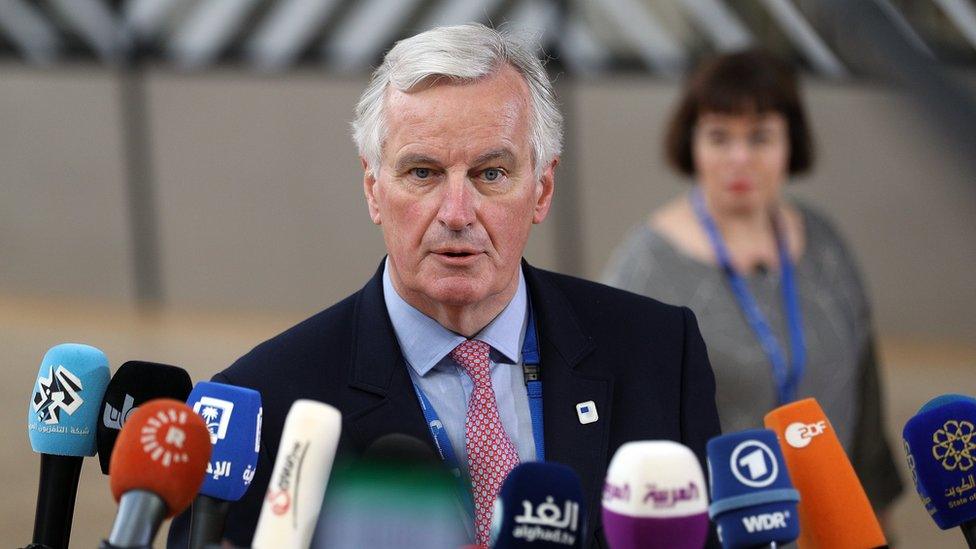
Michel Barnier is handling the European Union's Brexit negotiations
Leaders of the 27 remaining EU nations set out tough terms for the Brexit talks at the weekend, including the threat that they won't agree to start talks about a future trading relationship until progress has been made on settling how much the UK will have to pay to leave the European Union.
And several European politicians have contrasted the speed and unanimity of their negotiating position - for now at least - with what they claim is a lack of preparedness on the British side.
The Europeans say, for example, they can't be sure who will be Britain's chief negotiator - the main counterpart to Michel Barnier, who is the Commission's man. And they imply there's a lack of clarity even about who to talk to on the other side.
It's worth remembering that all this has come before formal Brexit negotiations have even started - they're likely to get going next month.
And every stage is likely to be accompanied by similar leaks and briefings. The only difference is, at some point, the British are likely to join in too.
- Published1 May 2017
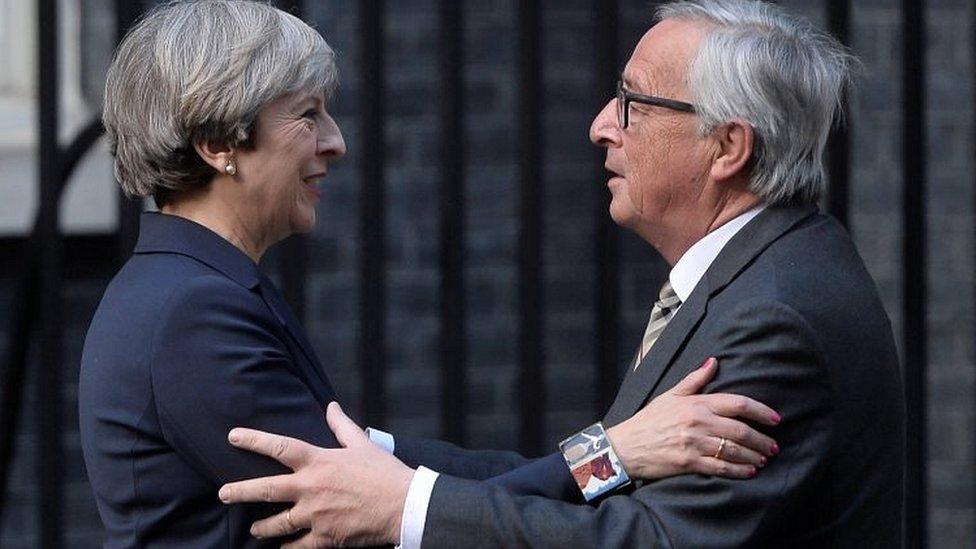
- Published29 March 2017
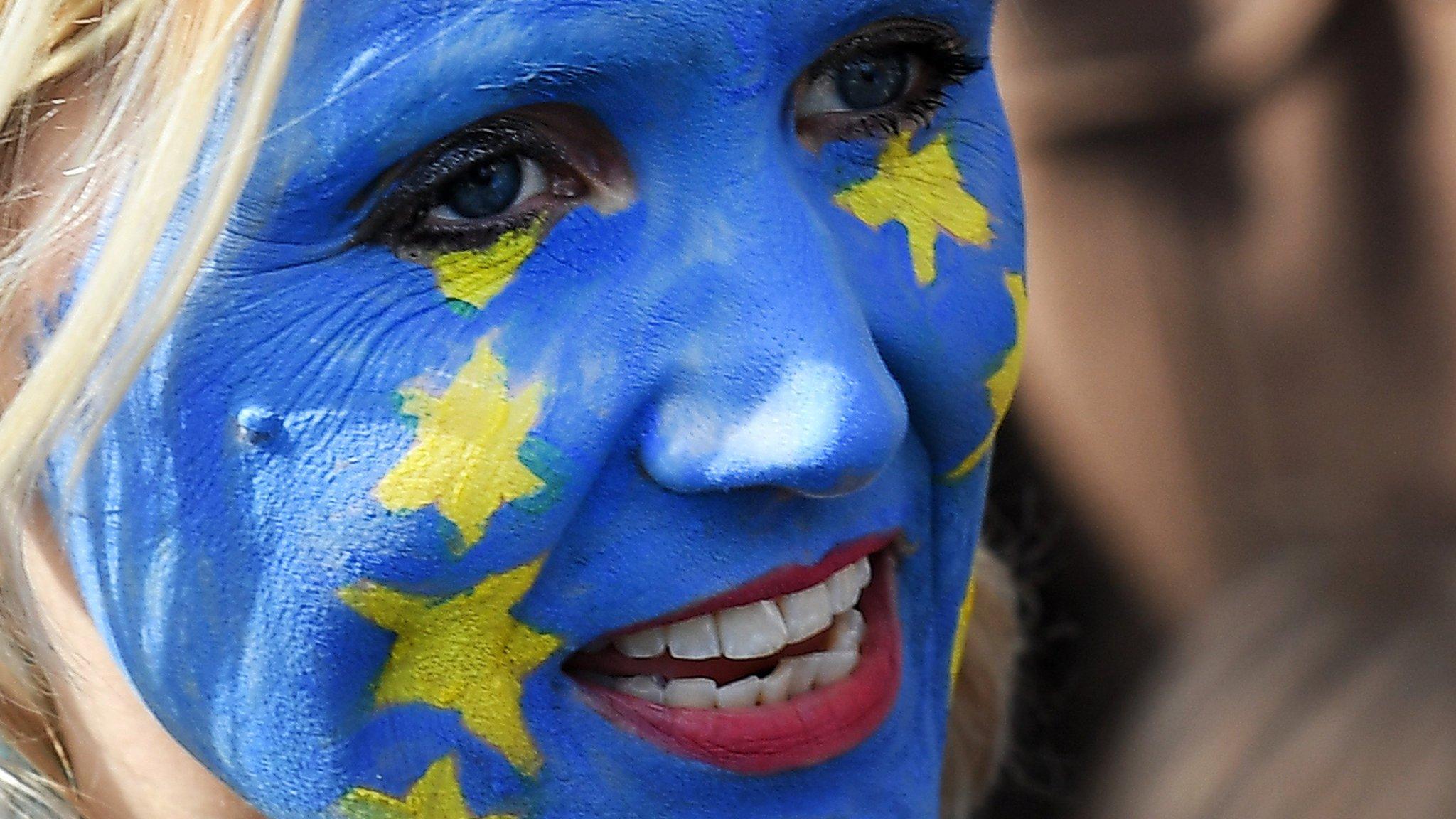
- Published30 December 2020
